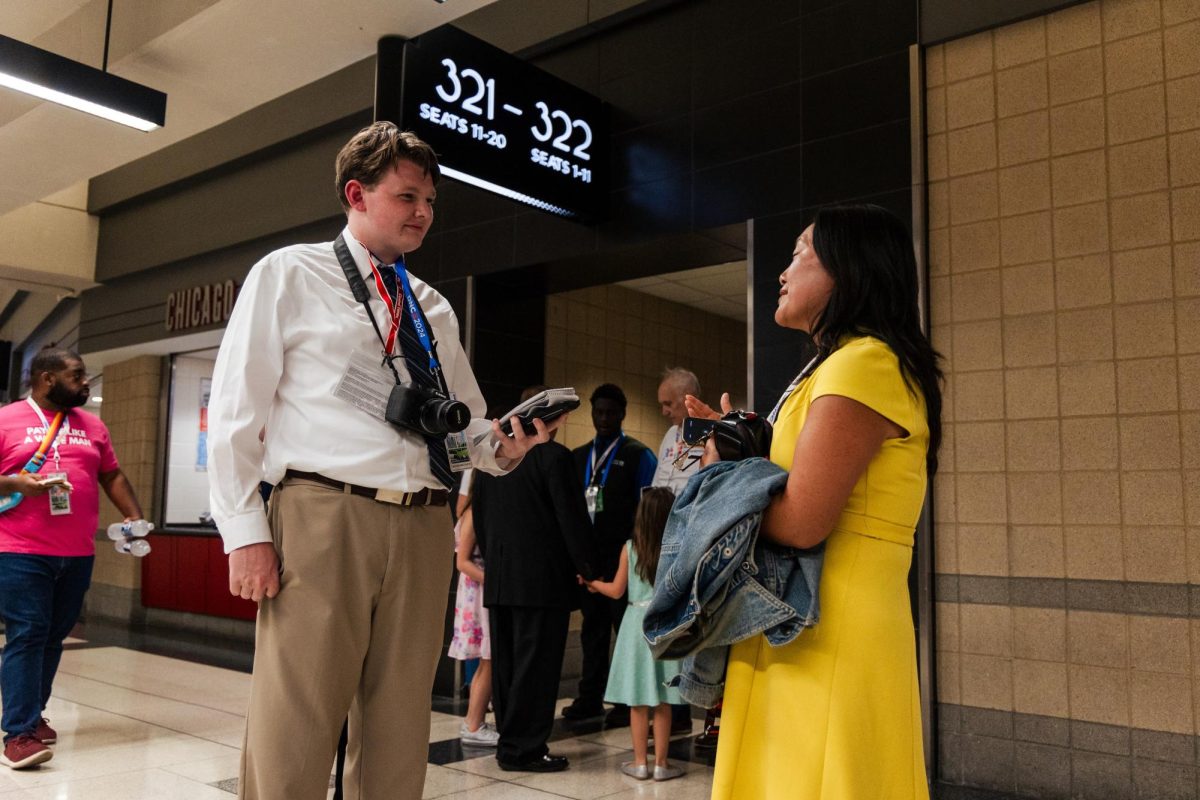Illinois Rep. Janet Yang Rohr introduced a bill dubbed the “Right to Play Act” to the Illinois House of Representatives on Feb. 6, and it passed the house on April 9.
House Bill 3037 seeks to allow student athletes to compete in a non-school athletic activity while in-season of scholastically participating in the same given sport. This exception may be granted with a waiver by a school’s athletic director or principal up to two times a year.
“The bill is made to be able to accommodate those special situations,” Yang Rohr said. “If you are a cross-country runner, you can go do that 5K or if you’re part of the pom pom team, you can go with your club to do a dance competition.”
The bill was originally introduced to allow student athletes to participate in the same sport as long as it was not on the same day as scholastic participation, but the two-waiver system was adopted as an amendment on April 9.
“I believe the amendment should actually take care of addressing a lot of the concerns that have been coming up,” Yang Rohr said. “There’s the overtraining concern and then…there were a lot of coaches that voiced their concern about club and travel sports taking over from school athletics.”
Under IHSA bylaw 3.101 “a student shall not participate on any non-school team, nor as an individual unattached in non-school competition, in that given sport or in any competition that involves the skill of the sport in question.”
“The reason those things aren’t permitted is that generally our membership doesn’t want those activities to go on for students when they’re members of their high school teams,” IHSA Executive Director Craig Anderson said. “If one of our schools determined we think this is a benefit for our students and wants to provide this opportunity, then any one of our member schools could write a proposal to modify the current limitations.”
The current IHSA bylaw allows for exceptions to be made for non-scholastic participation when approved by the Executive Director.
“When you actually talk with the people who are part of membership, the pattern that has come up over and over is like the coaches will say ‘the director says that he can’t do anything because he works at the behest of the directors’ and then the directors will say ‘well, we work at the behest of membership’ and membership has to agitate for change,” Yang Rohr said. “It’s like a big circle of everyone pointing at each other.”
Yang Rohr cited recent incidents such as a cross-country runner participating in a 5K to support his hospitalized sister being disqualified and a now-collegiate basketball player missing out on the opportunity to play at Madison Square Garden as an influence behind her introducing the bill.
“I kept on hearing all these things that kept coming up but not being addressed,” Yang Rohr said. “I introduced House Bill 3037 to try to get at these special one-off situations.”
Under IHSA bylaw 3.102, a non-practice tryout is currently allowed for student athletes participating in the same sport while in season.
“When a student becomes a member of their high school team, coaches organize practices and contests according to a schedule they think will best prepare their students to participate in the state series,” Anderson said. “If a student is participating outside of that, whether it be training or competitions, that’s going to work against what their coaches design.”
The bill passed the house with 68 yeas and 39 nays, and two members cast a present vote.
“For that cross-country runner, it was a very bad outcome for the IHSA to have to disqualify him,” Yang Rohr said. “I think everyone had a lot of sympathy for his situation and the bill is really just trying to make sure that the student athletes are able to have some flexibility there.”
Yang Rohr’s congressional district comprises much of Naperville and she was a former member of District 203’s Board of Education prior to taking her seat as a state representative.
Some opponents of the bill, including the IHSA Sports Medicine Advisory Council, have opposed the bill via Witness Slips due to concerns of overtraining.
“The big picture I just worry about if something like this was to move forward is that now in the midst of our high school season, we’ve got competition for coaches,” Anderson said. “We’ve got competition for students that’s really going to work against what for over a hundred years has been an incredible experience as a former high school athlete.”
The bill moved to the Illinois Senate, and had its first reading on April 10.
“These incidents keep coming up as far as student athletes across Illinois as we’ve seen with no action,” Yang Rohr said.




